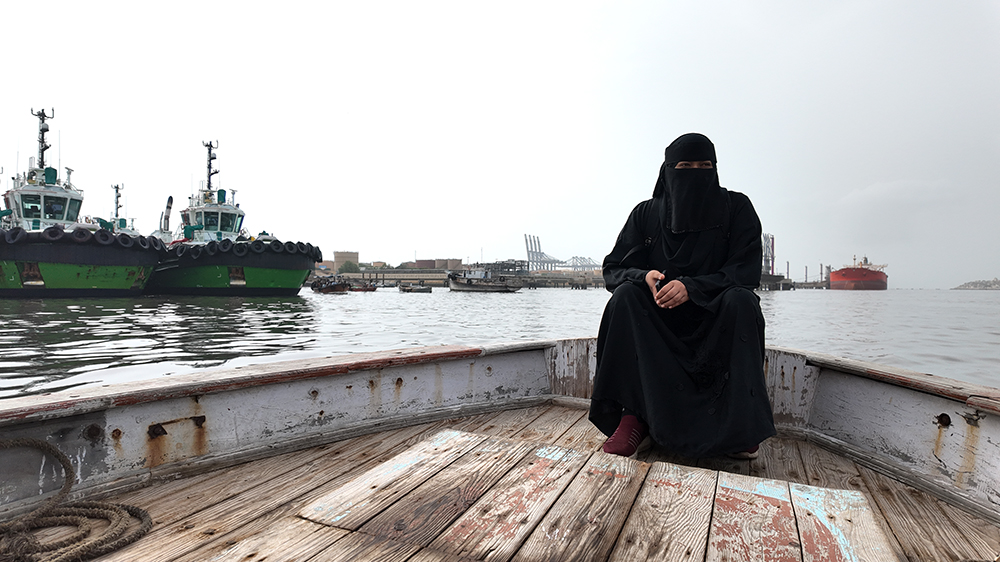In a fishing community, soaring heat is pushing mothers into giving birth early. Can a strained newborn care system handle climate change’s added toll?
The nurses sit on the bow of the ambulance boat as it pulls away from Karachi’s jetty. It moves through the waters, gliding past the fishing boats and rusting trawlers. The journey to Baba Island takes about 20 minutes, a journey that Carol and Marium make every week. They spend much of this time discussing patients, the ones they saw last week and will probably see again today.
Carol and Marium are medical volunteers. In their free time away from their hospital jobs, they spend some of it helping at a mother-and-child clinic that provides free healthcare, an anomaly on an island that lacks proper medical facilities, save for a few questionable clinics treating minor ailments.
“I visited one of these clinics once,” says Carol. “I saw an injection lying around without the needle being removed and disposed of properly. That’s when I knew the situation on the island was bad, but people don’t have a choice.”
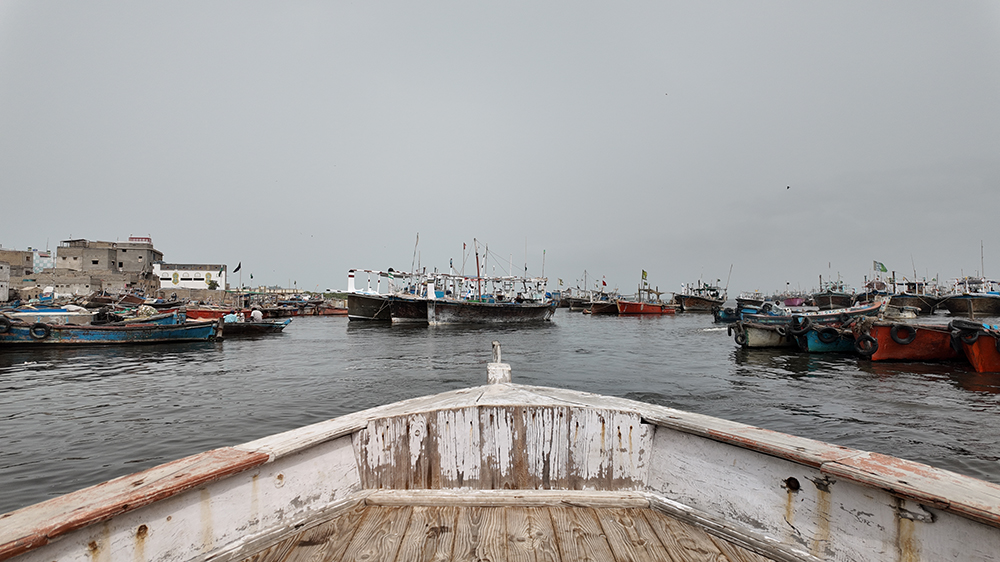
Situated a few kilometres away from the mainland of Karachi city, in Pakistan, Baba has been home to the Katchi fisherfolk for centuries. A place that once prospered off the bounty from the Arabian Sea has now become a slum, home to around 35,000 people struggling to access basic healthcare.
By the time Carol and Marium arrive at the clinic, 15 women are already inside, waiting to be counselled. One has run out of baby formula and needs a fresh can. In another woman’s lap, a baby is coughing and wheezing because of pneumonia.
Pregnancy isn’t an easy feat on the Island. There are issues with nutrition and accessing clean water. Amidst cleaning, cooking, and caring for their families, many expecting mothers find it hard to rest as well.
All this leads to health complications that Carol and the clinic team try their best to treat. But there’s a new issue that’s started to plague pregnant women on the island, something that isn’t so easy to address.
More expectant mothers are going into labour, far earlier than their due dates, and it tends to happen when the temperature rises alarmingly high in the area.
Baba Island, like Karachi and the rest of the country, has been severely affected by climate change-induced heatwaves in recent years. When the city’s mercury climbs to worrying levels, the island also reels from the effects.
The heatwaves spare no one, not even an unborn child. If they trigger an early birth, the newborn may suffer from severe health complications that require immediate care at a neonatal intensive care unit, or NICU, in a hospital.
But what if climate change causes preterm births in a country where NICUs are already struggling with one of the highest rates of preterm births worldwide? In 2020, over 50% of all preterm births in the world occurred in just eight countries, one of which is Pakistan.
Dr Ali Shabbir, a neonatologist who treats premature babies in Karachi, speaks of just how dire the situation already is. “Around 70 to 80% percent of our country’s babies are born preterm, which is quite high, he says. “Just imagine a country which is poor and has a very high burden of preterm births. How will its healthcare system cope?
“Something is there that is making our women give birth to more preterm babies.”
The cost of extreme heat
On Baba Island, most men earn their livelihoods through fishing, just like their fathers and grandfathers did. But about a decade ago, their nets began to come up lighter as marine life in the area declined because of issues like water pollution, deforestation of mangroves and overfishing.
A walk through the small, littered streets of Baba makes it clear how difficult life has become for a community struggling to make ends meet as the sea yields less, with no major government efforts to improve living conditions.
The single-room mother and child clinic is nestled on one such street on the island. Neha Mankani, a midwife who has been assisting women in Karachi with childbirth for many years, founded the clinic through her NGO, MamaBaby Fund.
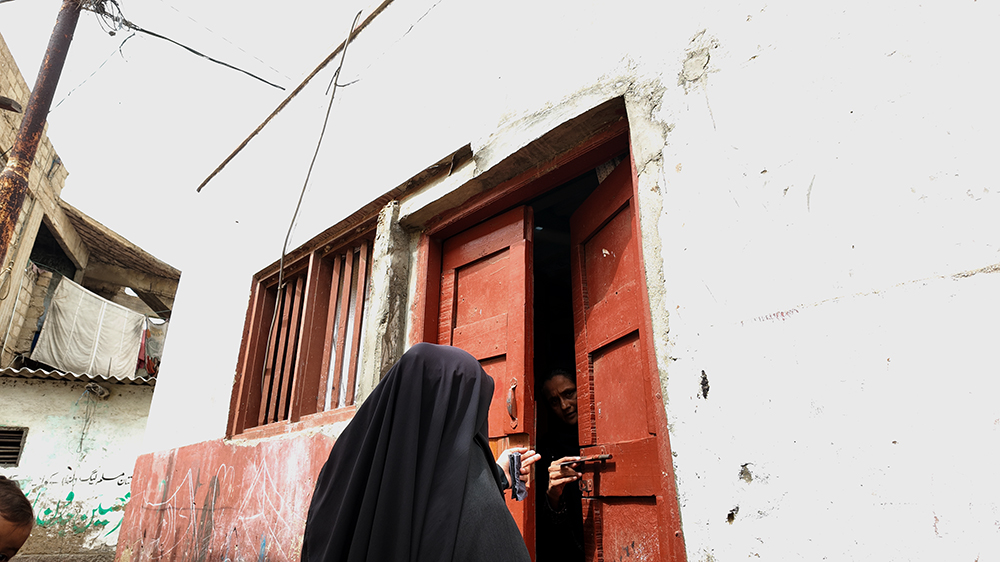
When summer arrives, Neha, along with Carol and the team, advises pregnant women on how to stay cool, especially when the fans are off as Baba faces hours, sometimes days, of power outages. They provide women with cooling kits, with items like spray bottles for spritzing themselves with water.
It’s valuable advice that helps many. But for some women, the heat remains unbearable, and it may trigger early labour pains, as Carol and Neha have observed. When that happens, the clinic refers them to a hospital in mainland Karachi.
According to Dr. Ali, who’s been treating sick babies at Aga Khan University Hospital’s NICU for the past several years, the earlier a baby is born, the higher the risk of complications. “First and foremost, many premature babies get breathing problems,” he says. “They cannot breathe on their own and need some sort of respiratory support.
“These babies are very, very prone to infections. They are prone to brain bleeds. They are prone to developing an eye condition specific to prematurity, which is now a leading cause of blindness worldwide. They may fail to put on weight and grow in height as expected since these babies are born really small.”
At a NICU, doctors care for premature babies, helping them breathe, grow, and develop the strength to leave the hospital without life-threatening complications.
A fragile system
Getting reliable NICU care in Karachi is far from simple, though. According to Dr. Ali, there is no level 4 neonatal intensive care unit in Pakistan, let alone Karachi, if we strictly assess hospitals according to the criteria created by the American Academy of Paediatrics.
The academy classifies newborn care facilities from Level 1 nurseries, where healthy babies are delivered and discharged, up to Levels 3 and 4, which are neonatal intensive care units. Level 3 NICUs can care for very sick or premature babies but offer less specialised treatment.
In contrast, Level 4 NICUs provide the highest level of intensive care, with the most advanced equipment and expertise available.
“The Aga Khan University Hospital’s NICU, which we call state of the art, and is the most advanced NICU in Pakistan, is only at level 3,” says Dr Ali.
“It can call itself a level 3 NICU because we meet specific criteria, which sets out a specific nurse-to-patient ratio. It tells you what kind of doctors should be on board. That there should be neonatologists.”
Neonatologists, who specialise in caring for newborns, especially premature or critically ill babies, are central to NICU care. But in many Pakistani hospitals, including those in Karachi, there aren’t enough of them. NICUs are often overseen by general paediatricians who treat infants, children, and adolescents.
Neonatologists need to work with a team of healthcare professionals to care for sick babies. “There should be a respiratory therapist,” says Dr Ali. “There should be a dietitian in the team. There should be a pharmacist in the team. There should be surgeons and sub-specialists available 24/7.”
Dr. Ali highlights the need for more nursing programs in the city to train skilled neonatal nurses. Sick babies need round-the-clock, detailed care given by nurses, much more than adults, which is why international criteria require a specific nurse-to-patient ratio in these units.
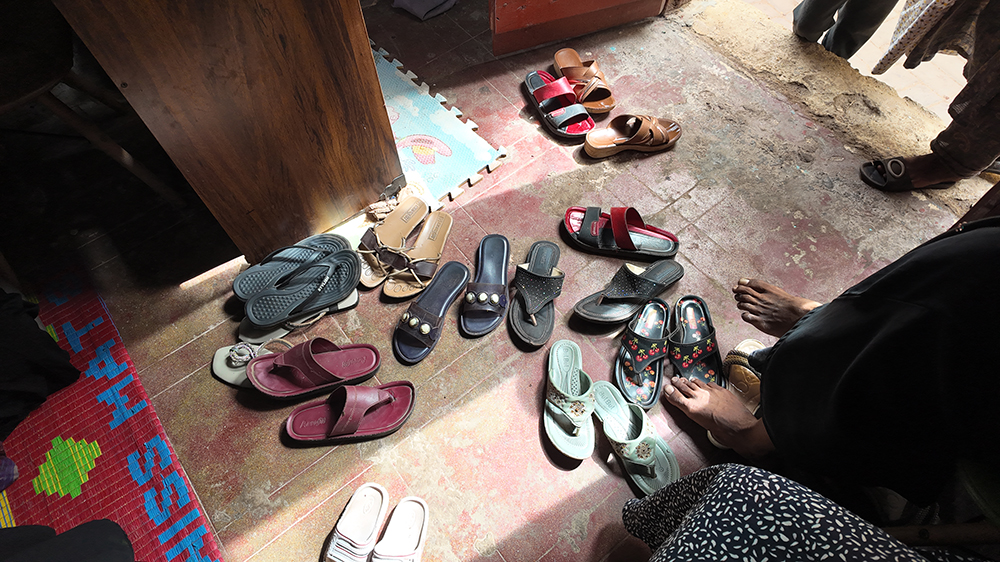
Not every hospital in the city has all the required healthcare staff, though. This is a shortage of people specifically trained to care for premature or sick babies, mainly because only a few local institutions in Karachi provide specialised training.
Out of those who do learn the ropes of the job, many leave Pakistan to pursue better job opportunities elsewhere. This brain drain isn’t limited to nurses. Research shows that 83% of doctors blame low salaries and unfair overtime work for motivating them to move abroad.
“If you go by the books and try to classify the NICUs in Karachi, or Pakistan, you’ll be surprised to see that many hospitals don’t even have a level 1 or level 2 setup. But the NICU name boards are there,” says Dr Ali.
Limited means and tough decisions
While healthcare providers are few, the number of babies in need of care is high. Most hospitals are always at full capacity, leaving little room to admit new patients when families arrive in a rush. “The demand is a lot more than the supply,” says Neha.
“We see this in Karachi all the time in places like Civil Hospital, which has a big neonatal intensive care unit. Jinnah Postgraduate Medical Centre also has a big unit. One of the best free units in Karachi at the moment is at the Children’s Hospital in Korangi 5, and they are always full.”
At Jinnah Postgraduate Medical Centre, one of the busiest government-run hospitals in Karachi, limited resources and high demand force doctors to make difficult decisions. Neha has often seen five babies being treated in one cot, an indicator of just how strained the system is.
“Every morning, the doctors at Jinnah Medical will say, ‘Okay, now we have 10 beds available, but we have 40 babies in the E.R. who need hospitalisation,’” says Neha.
“Then they’ll say, ‘Okay, firstly, the ones who are born at Jinnah get priority’. Second, someone might ‘make a call’ so their kid will get priority. And then thirdly, the babies that are left, the doctors will see who has a better prognosis, and those babies will probably be admitted. The other ones are turned away.”
The families of turned-away babies face difficult choices themselves: either they choose private care, or they go home and pray for a miracle. Usually, parents go home because private hospitals are more expensive than free or subsidised government-run hospitals.
Hospital costs depend on many things, such as how long the baby needs to stay admitted, the type of hospital contacted, and the illness the baby is suffering from. “We sometimes see babies whose bills have accrued up to like Rs 1.5 million,” says Neha. “Families then have to borrow money from somewhere, or they come to MamaBaby Fund for help.”
According to a survey, the average household monthly income is around Rs 41,000 in Pakistan. A Rs 1.5 million hospital bill is the equivalent of nearly three years’ income.
Even if a family manages to find space for their newborn, they’ll struggle to access reliable, quality care, especially at small, private healthcare facilities, which are mushrooming across Karachi. Many of these places provide substandard care and fail to meet strict international standards, such as those established by the American Academy of Paediatrics.
“There is a NICU on every other street, but there’s a lot of malpractice,” says Neha. “In my work, I see it all the time. A two-day-old baby is sneezing a lot, and just because of that, they’re on really heavy, adult antibiotics and IV injections. Sneezing is a normal, physiological reaction to birth.”
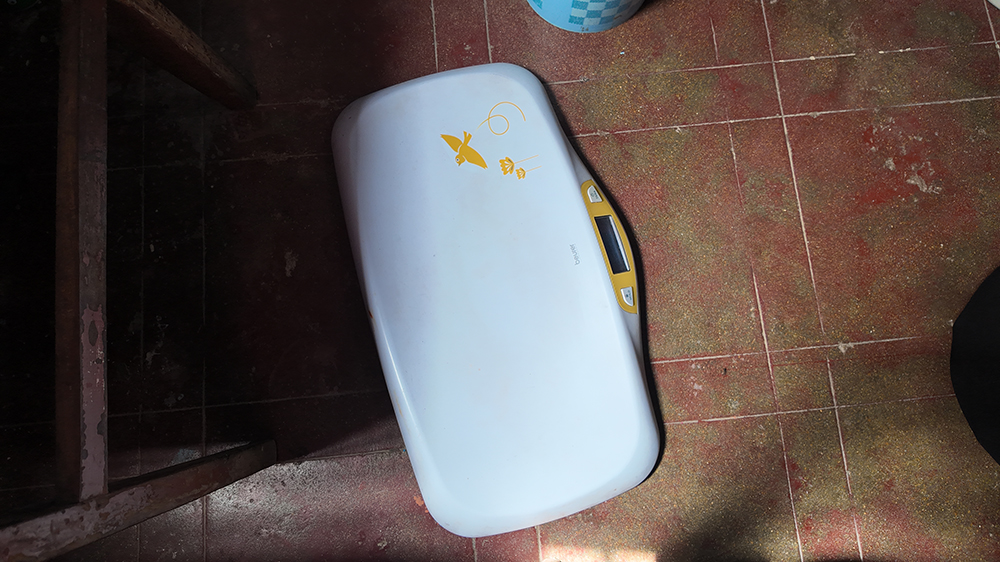
The way forward
Dr Ali thinks the gaps in the city’s newborn healthcare don’t only boil down to a lack of money. “I think in Pakistan, there is no lack of resources. There is a lack of intent,” he says. “I have gone to hospitals whose budgets are humongous, and these budgets are spent every year, without any improvement in the neonatal setup.”
He believes that making hospitals accountable for their spending on newborn care is a crucial step toward improving the system. But to do that, people need clear, transparent data to show where things are going wrong so that hospitals can be pushed to fix the problems.
“There is no data centre, as far as I know, where we can input data of incoming newborn or premature patients.” says Dr Ali, “And then my hospital is compared with another hospital, in terms of mortality, in terms of outcomes and we invest in the ones that are performing better, and cut down on the ones that are not performing well.”
In the end, though, no number of improvements can keep up with a growing demand for newborn care unless the root causes are addressed, and the numbers are brought down. Reasons for premature births, such as climate change, need to be tackled through steps that mitigate the problem.
“No country can cater for this many preterm births, even if you are the USA or any other developed country,” says Dr Ali. “If you have this much of a burden of preterm births, your systems would also be exhausted.”
As the heat intensifies, it quietly endangers the health of women and children, revealing consequences that many never saw coming a few years ago.
On Baba Island, the risk of premature births due to climate change has already become clear.
For a community of fisherfolk already struggling with the most basic health challenges, timely intervention can be the difference between life and death for its future generations.
